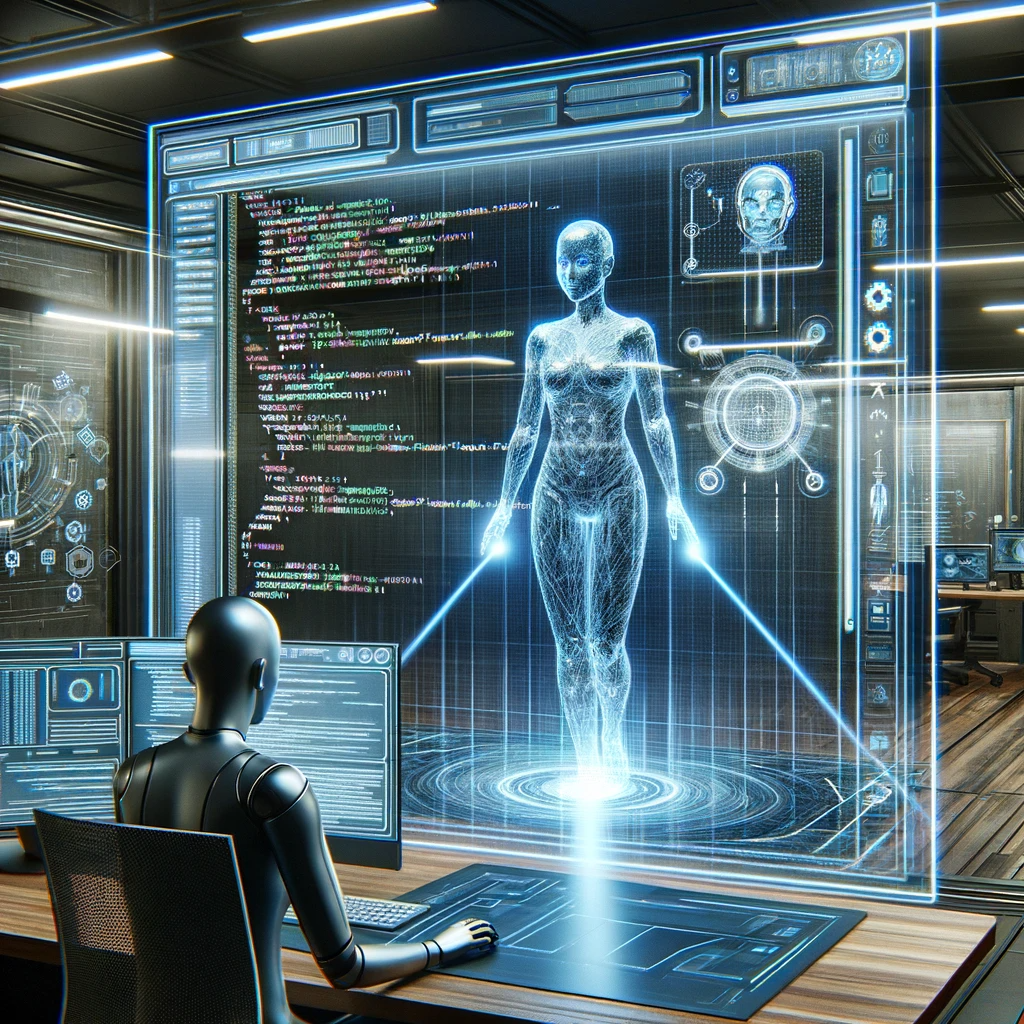
Harnessing AI for Efficient Code Review
Introduction
In the fast-evolving landscape of software development, efficiency and accuracy in code review have become paramount. The integration of Artificial Intelligence (AI) into code review processes is a groundbreaking shift, offering a blend of speed, precision, and continual learning. This innovation is not just a fleeting trend but a cornerstone in the future of software development. In this article, we'll explore the transformative role of AI in code review, its benefits, challenges, and real-world applications.
What is AI-Based Code Review?
At its core, AI-based code review is a leap from traditional manual methods. It employs sophisticated algorithms and machine learning techniques to scrutinize code submissions automatically. Unlike human reviewers who might miss subtle errors or be inconsistent in their reviews, AI systems consistently apply a rigorous set of standards to every line of code. They analyze patterns, detect anomalies, and even learn from past reviews to enhance future analyses.
This technological marvel isn't just about spotting errors; it's about understanding the context of the code. AI tools go beyond surface-level checks, delving into the semantics and logic behind the code, offering insights that were previously unattainable in manual reviews.
Benefits of AI in Code Review
The integration of AI in code review processes brings a multitude of advantages:
- Increased Efficiency: AI significantly speeds up the code review process. It can analyze vast amounts of code quickly, identifying potential issues in a fraction of the time it would take human reviewers.
- Enhanced Accuracy: AI systems are less prone to human error. They maintain a consistent standard throughout the review process, ensuring that even the most subtle issues are not overlooked.
- Learning and Adaptation: AI tools learn from each code review. They continuously update their understanding and improve their ability to identify complex issues, leading to better recommendations over time.
- Scalability: As the codebase grows, AI systems can easily scale to handle increased workloads without sacrificing quality or efficiency.
- Objective Reviews: AI provides unbiased reviews, solely based on the code's quality and adherence to standards, eliminating any human bias that might affect the review process.
These benefits collectively contribute to not just a more robust and error-free code but also a more agile and competitive development process.
Challenges and Limitations
While AI in code review is transformative, it's not without its challenges:
- False Positives/Negatives: AI systems may incorrectly flag issues (false positives) or miss real issues (false negatives), requiring human oversight to ensure accuracy.
- Learning Curve: Integrating AI into existing workflows can be a complex process, with a significant learning curve for development teams.
- Need for Human Expertise: Despite the advanced capabilities of AI, human expertise is still crucial for nuanced decision-making, especially in complex or ambiguous situations.
- Over-Reliance Risks: There's a risk of becoming overly reliant on AI, potentially neglecting the need for manual review in certain scenarios where human judgment is key.
- Privacy and Security Concerns: AI tools analyze code that may contain sensitive data. Ensuring the security and privacy of this data is a critical consideration.
- Customization and Maintenance: AI tools often require customization to fit specific project needs and regular updates to stay effective.
Addressing these challenges is crucial for harnessing the full potential of AI in code review processes.
Real-World Examples
AI-driven code reviews are making significant strides across various industries. Here are some notable examples:
- GitHub’s CodeQL: This AI-powered static analysis tool identifies security vulnerabilities in code, suggesting fixes and patches, significantly enhancing the security of numerous open-source projects.
- Facebook Infer: An AI-based tool used by Facebook for enhancing software reliability, Infer identifies programming errors and potential crashes, particularly in complex codebases.
- Google’s DeepCode: DeepCode offers intelligent suggestions for code improvements and is valuable for optimizing development workflows and reducing coding errors.
- Uber’s Aibolit: Aibolit identifies code smells - indications of potential issues in code quality, helping maintain clean and efficient codebases.
- Microsoft’s IntelliCode: IntelliCode provides AI-generated code completion suggestions and recommendations, improving productivity and reducing coding inconsistencies.
These examples highlight the transformative impact AI code review tools are having in enhancing code quality and development processes across the tech industry.
Future Prospects of AI in Code Review
The future of AI in code review is ripe with possibilities:
- Advanced Learning Algorithms: As AI technologies evolve, we can expect even more sophisticated learning algorithms that can adapt and improve with less human intervention.
- Greater Integration: AI will likely become more seamlessly integrated into development tools, offering more intuitive and interactive code review experiences.
- Expanding Capabilities: Future AI tools might offer broader capabilities, like predictive analysis to foresee potential future issues based on current coding trends.
- Enhanced Customization: AI tools will become more customizable, able to adapt to the unique needs and standards of different projects and organizations.
- Ethical AI Development: There will be a greater focus on developing ethical AI, ensuring unbiased, fair, and responsible code review processes.
As AI continues to advance, its role in code review will undoubtedly expand, offering more efficient, accurate, and insightful code analyses, ultimately shaping the future of software development.

Post Address
3213 Dalhart Dr, Fort Worth TX 76179
General
Phone: (800) 839-1129
Email: sales@AnterisIndustries.com
Operation Hours Central Standard Time
Mon-Sat: 09.00 to 05.00 (Sunday: Closed)


